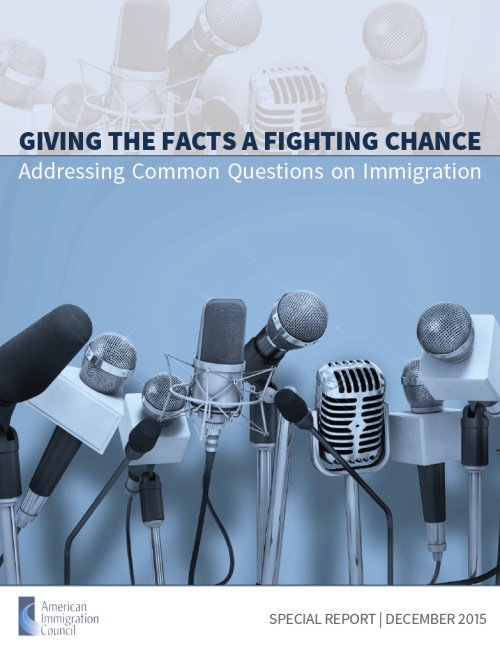There is no evidence that undocumented immigrants come to the U.S. just to give birth.
- Unauthorized immigrants come to the U.S. to work and to join family members. Immigrants tend to be of child-bearing age and have children while they are in the U.S. They do not come specifically to give birth.
- Stories about “birth tourism” point to small numbers of foreigners who come to the U.S. legally to give birth to their children. It would be ridiculous to change the U.S. Constitution and impact every single American just to punish a few individuals.
- “Anchor babies” are a myth.
- U.S.-citizen children do not protect their parents from deportation. Every year the U.S. deports thousands of parents of U.S. citizens.
- U.S.-born children cannot petition for legal status for their parents until they turn 21 years old. In most cases, if the petition is granted the parents would still have to leave the U.S. and then be barred from re-entering for at least 10 years. That’s a total of 31 years. Undocumented immigrants do not come to the U.S. to give birth as part of a 31-year plan.
Eliminating birthright citizenship would INCREASE the undocumented population.
- Since children born to undocumented immigrants would presumably be undocumented, the size of the undocumented population would actually increase as a result of the new policy.
- Depending on the details of the changes to birthright citizenship laws, the Migration Policy Institute estimates that the number of unauthorized children living in the U.S. would increase dramatically if birthright citizenship were repealed. For example, if citizenship were denied to every child with at least one unauthorized parent, the unauthorized population in the U.S. would reach 24 million by 2050.
Repealing birthright citizenship would create a new permanent underclass.
- While some children could acquire the citizenship of their parents, others would be left with no citizenship or nationality, leaving them stateless. Children may have no legal home country to turn to. They would be forced to live in the margins of the international community.
- Repealing birthright citizenship would create an underclass of unauthorized immigrants who, through no fault of their own, would be forced to live in the margins of U.S. society, would not have access to health care and basic services, would be vulnerable to exploitation and abuse, and would be at constant risk of deportation.
Eliminating birthright citizenship is a distraction that moves us away from fixing the real problems with our broken immigration system.
- Immigrants come to the U.S. to work, to reunite with their families, or to flee persecution. Denying birthright citizenship will not discourage unauthorized immigrants from coming to the U.S., and it will not encourage those already here to leave.
- Are we really willing to change the Fourteenth Amendment of the Constitution rather than address the real problems with our broken immigration system? Rather, Congress should be addressing immigration issues head on by reforming our immigration laws in a way that fairly addresses the economic and labor needs of the country, unites American families, and ensures that immigrants have legal channels to enter and remain in the U.S.



